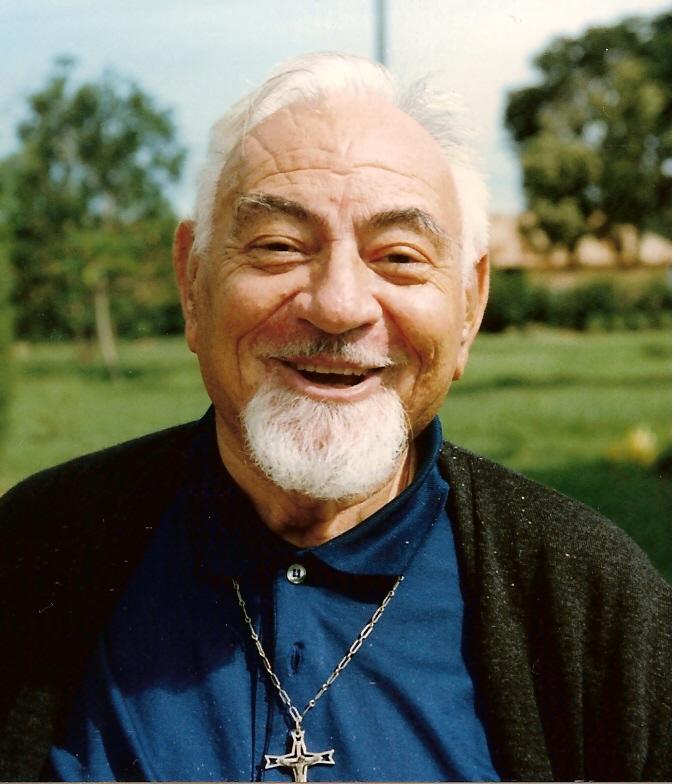Daniel Comboni
Misjonarze Kombonianie
Obszar instytucjonalny
Inne linki
Newsletter
In Pace Christi
Ruggieri Mario
Fr. Mario Ruggieri was born in Melfi in 1922. He did his noviciate in Venegono, taking his first vows in 1942, and did his scholasticate in Verona and in Venegono. He was ordained priest in 1948. After a year in Troia and another in London to learn English, he was assigned to Arua, in West Nile, Uganda. There he was under the guidance of a great missionary, Fr. Antonio Antonioli, who is even today remembered locally with veneration as “Fr. Atò”. Fr. Antonio was asking the new missionaries to be close to the people, to know them personally, to study the local language and to regularly go on safari. The safari involved visiting every chapel for pastoral activity, staying in the area, outside the main mission, for about a week. The Comboni Sisters used to prepare a box with food: sugar, salt, coffee and some bread, which was supposed to last for the whole week. Fr. Mario used to tell the story of how on one of his first safaris with Bro. Albino Monchieri, another young missionary, they found themselves with an empty box after only two days. Nevertheless, they completed the safari as planned, surviving on the food they received from the local people. Fr. Mario used the safari with great success. The simple people appreciated Fr. Mario’s presence because he always had a kind word for all and sweets for the children. The catechists who accompanied him on these visits still remember him fondly.
Fr. Mario worked all the time in the Logbara area of West Nile, what is now known as Arua diocese. He learned Logbara very well. Over the years he served first as assistant priest in the missions of Arua (Ediofe), Lodonga, Maracha, Koboko and Olovu, and then as parish priest at Lodonga, Koboko, Olovu and Ombaci. In his last years he was once again transferred to the Comboni community of Ediofe, where he provided spiritual assistance to the “Trinity Convent”, a contemplative community of African Sisters founded by the first bishop of Arua, Mgr. Angelo Tarantino. The main aim of this community is to pray every day before the Blessed Sacrament for the priests and the diocese of Arua. Fr. Mario also helped as confessor in the parish of Ediofe. For some years he also served as the treasurer of the community. He helped the poor, especially the elderly. While he was parish priest of Lodonga, he renovated and decorated the parish church, encouraged also by Fr. Bernardo Sartori. This church was recognised as a minor basilica and the title given to Mary was the “Sultan of Africa”. Fr. Mario’s devotion to Mary had deep roots, grown in his contacts with Fr. Bernardo. During the restructuring of the basilica, his love for Mary was evident and spread to all the Christians of the diocese. The rosary became more popular and the diocesan pilgrimage on the feast of the Immaculate Conception drew ever more Christians.
At Ombaci he helped the Christians, living in the area around the airport of Arua, to build a place of prayer. With their cooperation, together with donations from friends in Italy, he built a little church in honour of the Virgin Mary. He used all his free time and his artistic skill to embellish this chapel and soon groups of Christians started going there on pilgrimage. At Ombaci he was very close to the catechists, visiting them in their chapel-communities and helping them when in need. He always participated in meetings that discussed and made decisions about pastoral work.
At Ombaci, Fr. Mario also taught for a while religion in the first classes of the secondary school. The students respected him both for his ability to use chalk and blackboard and for his constant smile. In his last years he spent at Ediofe he was asked by the bishop of Arua, Mgr. Frederick Drandua, to be the Catholic chaplain of the Catholic Hospital of Arua. During his last holidays in Italy, he collected donations which made it possible to build a chapel for the hospital.
Fr. Mario was very sociable and it was a pleasure to have him in the community. He was sometimes called “Caruso” because he had a great voice and used to sing to entertain. He was generous, always ready to share with his confreres the sweets, food delicacies and other things he received from his friends. In January 1999 he was transferred to Italy where he spent his last years in the Mother House of Verona.
As an example of his openness towards others, we mention his friends and the people of Ledro Valley near Trent who, every time Fr. Mario was on holidays in Italy, invited him to visit them, welcomed him as one of their own, sent him the newsletter of Ledro Valley and generous donations. Some of the people from Ledro Valley went to Verona for Fr. Mario’s funeral.

